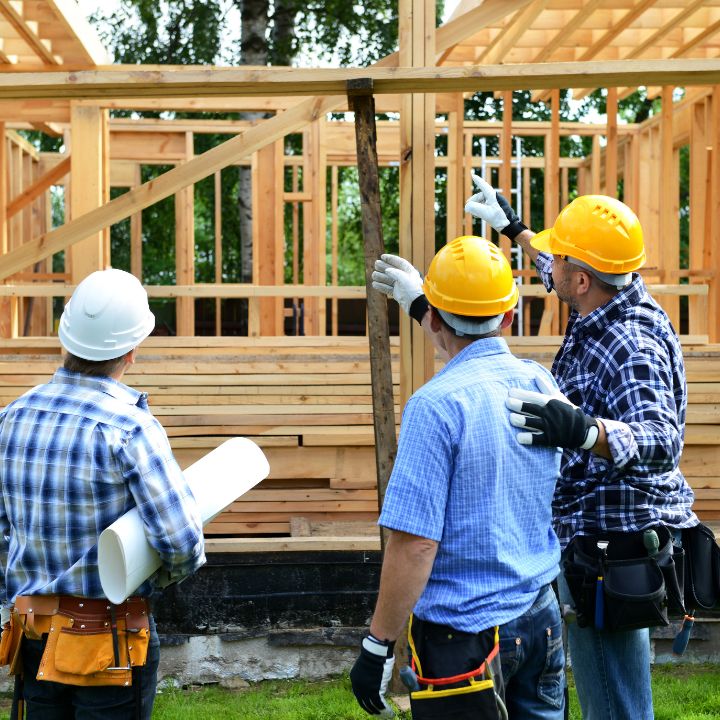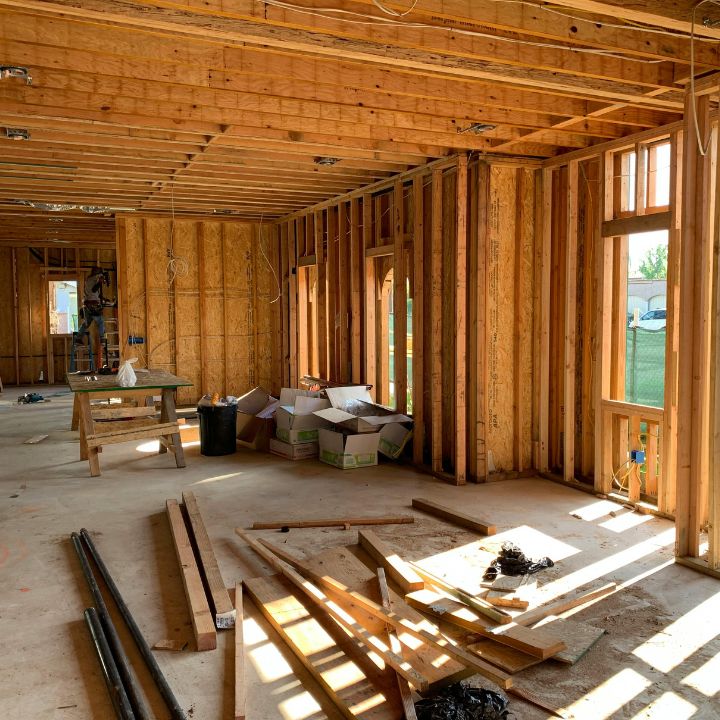The Myth About New Homes
Many buyers assume that if a home is brand new, it must be perfect. After all, it was just built, passed city inspections, and has never been lived in before. But here’s the truth: even brand-new houses can have flaws. A new home inspection ensures that your builder delivered a safe, quality product and gives you assurance before moving in.
So, the question isn’t “Should I get a home inspection?”…it’s “Can I afford not to?”
What Is a New Home Inspection?
A new home inspection is similar to a traditional home inspection, but it focuses specifically on recently constructed properties. The inspector checks all major systems, structure, and finishes to ensure everything was installed correctly and is functioning properly.
This type of inspection often happens:
- Before closing on the property (so issues can be fixed before you move in)
- At the one-year warranty mark (so you can submit repair requests to the builder before your warranty expires)
Why a New Home Inspection Is Essential
1. City Inspections Aren’t Enough
While municipalities perform code inspections during construction, those checks are usually limited to building code compliance. They don’t guarantee quality workmanship or attention to detail. A home inspection goes deeper, focusing on the safety and functionality of the home.
2. Builders and Contractors Make Mistakes
Even the best builders rely on teams of subcontractors, and mistakes can happen. It’s not uncommon for inspectors to find:
- Missing insulation in attics or walls
- Improperly wired electrical panels
- HVAC systems installed incorrectly
- Leaks around windows, roofs, or plumbing fixtures
A new home inspection helps identify these issues before they become costly repairs.

3. Protecting Your Investment & Your Family
Buying a home is one of the biggest financial commitments you’ll ever make. A thorough home inspection protects your investment by ensuring the property meets quality standards and is safe for you and your family.
4. Leverage for Repairs
If your inspector finds problems before closing, you can request that the builder address them at no extra cost. This gives you valuable leverage to ensure the home you’re buying is safe and move-in ready.
What Does a New Home Inspection Cover?
A new home inspection is comprehensive, covering the same areas as a traditional full home inspection. Here’s what inspectors typically evaluate:
- Inspection details (year built, stories, type of building, etc.)
- Exterior
- Siding, flashing, and trim
- Walkways, patios, and driveways
- Doors and windows
- Vegetation, grading, drainage, and retaining walls
- Roof
- Material of coverings
- Roof drainage systems
- Foundation, crawlspace, and structure
- Foundation material
- Floor material and structure
- Roof structure and attic (roof deck material)
- Garages and carports
- Style
- Garage door material
- Garage door type
- Heating and cooling
- Heating equipment: energy source, heat type, air handler location, thermostat location, manufacture date
- Cooling equipment: configuration, energy source/type, location, manufacture date, size, unit heated,
- Distribution systems: ductwork, heating & cooling source present in each room
- Plumbing
- Filters, water source, sewer
- Drain, waste, and vent systems: material
- Water distribution & supply systems: water supply materials, main water shutoff location
- Water heater: power source/type, capacity, location, manufacturer, date of manufacture
- Fuel storage & distribution systems: main gas shut-off location, gas meter location
- Electrical
- Electric service: electrical service conductors, total amps, location of main disconnect
- Interior panel: panel type, manufacturer, panel capacity, surge protector installed
- Wiring circuits: wire types
- Lighting fixtures, switches & receptacles: GFCI protection observed in ‘wet’ areas? AFCI protection observed?
- Applicances
- Range/oven/cooktop: energy source, brand, hood type
- Dishwasher: brand, general observations
- Refrigerator: brand, general observations
- Built-in Microwave: brand, general observations
- Interior
- Doors
- Windows
- Countertops and cabinets
- Attic, insulation, and ventilation
- Flooring insulation: type
- Attic insulation: R-value, insulation type
- Ventilation: type
- Exhaust systems: exhaust fans
- Attic access: location
Every home inspection report includes detailed photos to reference. Have questions about your inspection report? Give us a call, we’re happy to walk you through the findings. Are you also wondering: how much does a home inspection cost? Check out our pricing guide to learn more!
Common Issues Found in New Construction Homes
You might be surprised by the kinds of problems inspectors uncover in new builds. Some common home inspection red flags include:
- Missing roofing shingles or improperly sealed flashing
- Poor drainage around the foundation
- Electrical outlets that don’t work
- Plumbing leaks under sinks or behind walls
- Uneven flooring or poorly installed trim
- Gaps in caulking around windows and tubs
Even though these may seem like small details, they can lead to big problems if left unaddressed. For a more detailed look into home inspection red flags, check out our blog: Home Inspection Red Flags: What Inspectors Look For Before You Buy
When to Schedule a New Home Inspection
1. Pre-Drywall Inspection
This occurs before the drywall is installed, allowing the inspector to see behind walls and check framing, wiring, and plumbing.
2. Final Inspection (Before Closing)
This is the standard home inspection most buyers are familiar with, ensuring everything is complete and working properly before you sign the papers.

3. One-Year Warranty Inspection
Most builders provide a one-year warranty. A final home inspection before it expires gives you the opportunity to submit repair requests covered by the warranty.
How to Choose the Right Home Inspector
Not all inspectors have experience with new construction, so it’s important to choose wisely. Look for:
- Licensed and certified inspectors
- Strong experience with new construction properties
- Detailed digital reports with photos
- Positive reviews and a strong reputation
If you’re searching for the best home inspector near me, make sure to ask if they regularly handle new builds. You can learn more about our inspectors here.

Tips for Homebuyers: Getting the Most From Your New Home Inspection
- Attend the inspection if possible. You’ll learn valuable information about your new home.
- Ask questions in real time. Inspectors are happy to explain their findings so that you understand every step of the way.
- Take your own notes and photos if you’d like. This can help when discussing issues with your builder. You will also receive a comprehensive report that comes with photos of every area of the property.
- Review the report carefully. Pay special attention to safety concerns and warranty-related items.
Summary: Don’t Skip the New Home Inspection
Even brand-new homes can hide costly issues. A new home inspection ensures you’re moving into a safe, well-built property and gives you leverage to address problems while the builder is still responsible.
When making one of life’s biggest investments, assurance is priceless. Don’t skip the inspection, and protect your future and your family by scheduling a full home inspection today.
Ready to schedule your new home inspection? Contact our team of experts and make sure your dream home truly lives up to expectations in your area.
